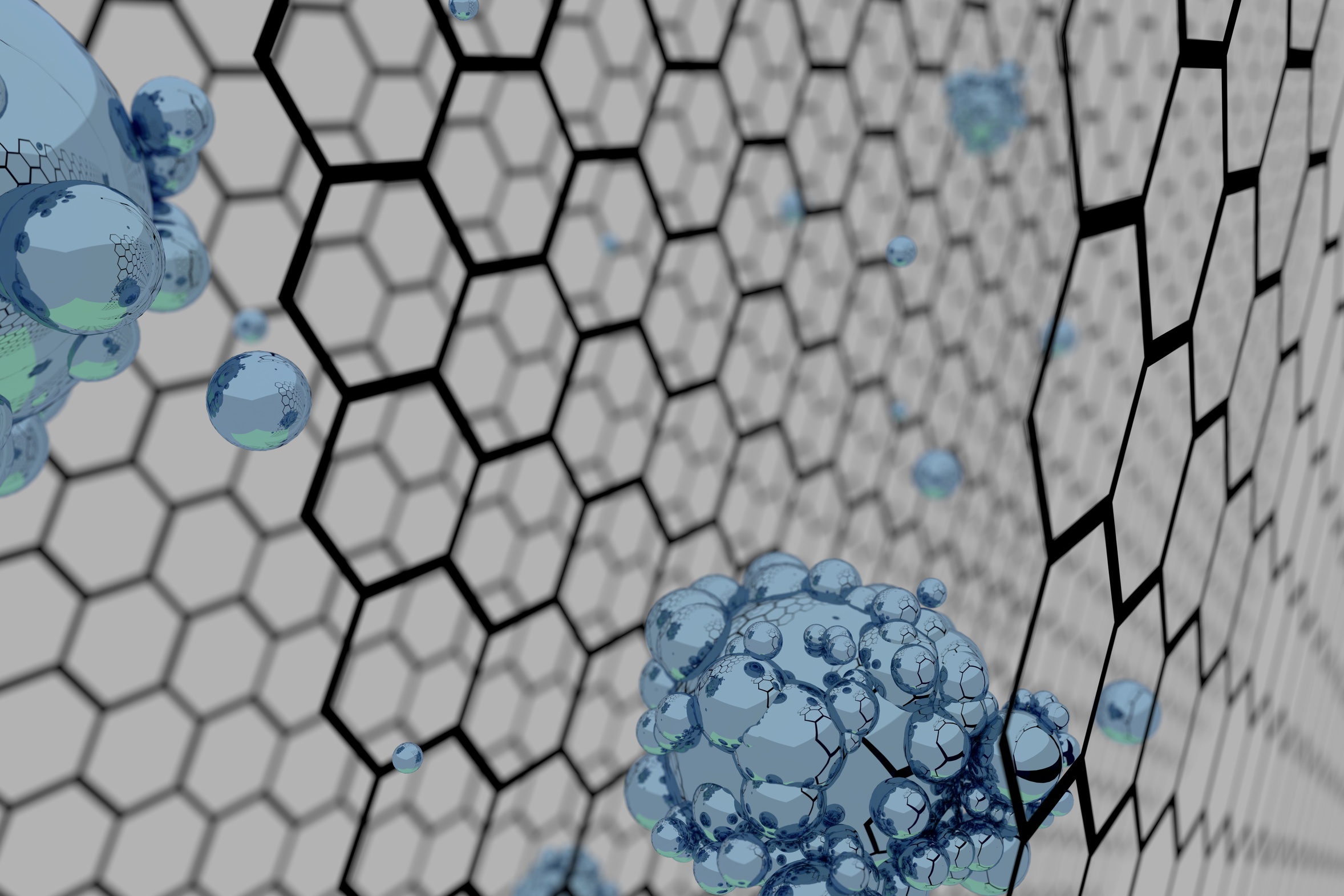Energy and water shortages are two of the greatest challenges facing the world today. They are also likely to remain enormous challenges into the future as the global population grows and the rapid industrialisation of developing economies continues. Solutions to both challenges may be found with applications of graphene: the world’s newest wonder material. Ionic Industries is one of several Australian companies working on graphene technologies to pave the way for Australia’s progression to a high-tech, high value industrial and manufacturing economy.
We’ve all heard of the wonderful properties of graphene. It is 200 times stronger than steel. It has the largest volume-to-surface area ratio of any material, the highest electrical density of all materials (1,000,000 times that of copper) and conducts electricity close to the speed of light with virtually no resistance. It is also chemically inert so does not react with other atoms.
 Graphene’s strength, surface area and chemical inertness make it ideal for use in water filtration applications. These qualities can be harnessed in the form of graphene oxide (GO) membranes that are chemically resistant, much stronger and more tunable than existing polymer or ceramic membranes meaning safer, lower maintenance, wider applications and increased flow rates. In a simpler application, GO coated Sand may be a simple activated carbon substitute with higher-performance at lower cost than granular activated carbon products. These technologies, developed and commercialised from Australia could be the solution to water treatment problems in Australia and for the 3 billion people around the world who will be impacted by water scarcity in the not-too-distant future.
Graphene’s strength, surface area and chemical inertness make it ideal for use in water filtration applications. These qualities can be harnessed in the form of graphene oxide (GO) membranes that are chemically resistant, much stronger and more tunable than existing polymer or ceramic membranes meaning safer, lower maintenance, wider applications and increased flow rates. In a simpler application, GO coated Sand may be a simple activated carbon substitute with higher-performance at lower cost than granular activated carbon products. These technologies, developed and commercialised from Australia could be the solution to water treatment problems in Australia and for the 3 billion people around the world who will be impacted by water scarcity in the not-too-distant future.
Graphene’s conductivity and electrical density make it ideal for use in energy storage applications including supercapacitors. Even the man responsible for the world’s largest Li-ion factory, Elon Musk, acknowledges that supercapacitor technology will bring the next breakthrough in relation to electric vehicles. Head of the Nanoscale Science and Engineering Laboratory (NSEL) at Monash University, Associate Professor Mainak Majumder, explains the significance of graphene supercapacitors:
50 years ago, Moore wrote that every two years, transistor density in circuits would double. Today we see a world ever more reliant on electronics shrinking in size and increasing in power. Traditionally, supercapacitors required a separator sandwiched between two flat sheets of porous carbon electrodes. This forced the ions to travel large distances and resulted in inefficient performance. By using advanced micro-technologies, we have created a new device where positive and negative electrodes are all in one plane and separated by much smaller distance. Furthermore, as we get the electrodes smaller these efficiency gains are further compounded by the ‘edge effects’ and the amount of energy and power these supercapacitors can deliver per unit volume becomes exceedingly large.
Manufacturing of such supercapacitors could become part of Australia’s push into high-tech, high-value markets making use of this next generation energy storage technology. The potential applications would include defence and aerospace where Australian industry is already performing well, medical devices and consumer electronics. Produced on a larger scale, graphene supercapacitors could also be the key to unlocking the potential of renewable energy solutions to reduce our reliance on fossil fuels and alleviate the pressures on Australian manufacturing from high energy prices.
Ionic Industries is an Australian early stage technology company, that has been working with Monash University for six years on these graphene technologies. The company is currently seeking to raise $2.8 million in new capital to fund the next stage of its programs for research and commercialisation. It is also an Early Stage Investment Company under Australian Innovation policy giving investors a 20% tax deduction on investment costs and CGT exemption for up to 10 years. For more information on Ionic’s work and current investment opportunities see www.ionicindustries.com.au
